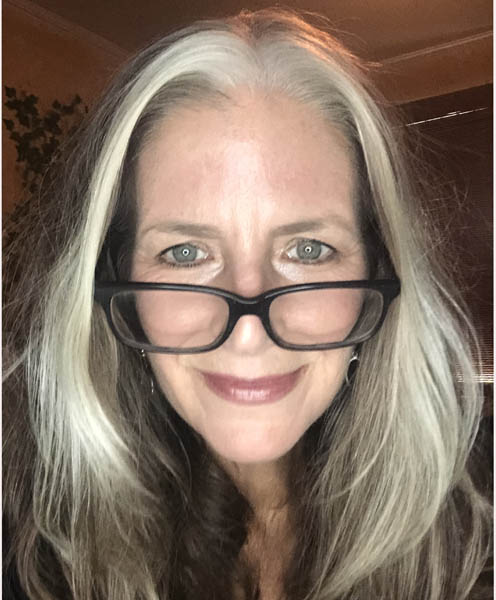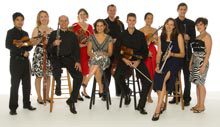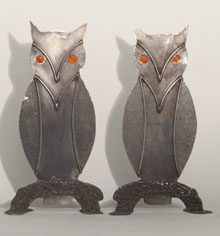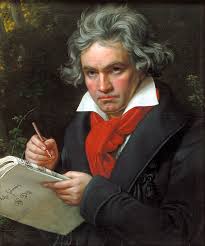Black Friday, late-morning. My daughter’s busy packing so she can high-tail it out of here for the Carolina-Clemson game – a bit of scheduling that irks me every year, but what are ya gonna do? – and my husband’s making French toast while The Godfather drones in the background.
Is it just my imagination, or do they show The Godfather every Black Friday now? And maybe every Good Friday, too? In any case, it seems to have become an inexplicable part of our holiday background noise, right up there with The Sound of Music. My husband’s devotion to The Godfather is nothing short of religious, so maybe it makes a certain kind of sense.
We’ve entered that blurry, dream-like period between Thanksgiving and New Year’s when there’s too much to do, and not enough time to do it, and it all seems to overlap and interweave like some marvelous tapestry of wonder and anxiety.
Cold weather has finally arrived, albeit a day late. (I don’t hold with a warm Thanksgiving. It’s against my principles!) Our house is trans-seasonal, with pumpkins on the porch and a Christmas wreath on the door. My daughter says I must remedy that situation post haste, but I’m in no hurry. This year’s pumpkins actually persevered instead of rotting, and one hates to throw out a good gourd.
Black Friday is no time to be on deadline. Everybody else seems to have the long weekend off, and I really just want to sit here in my pajamas, scrolling Facebook and reading movie reviews.
Speaking of which, I just read a fascinating piece at The New York Times about WICKED, the new movie adaptation of the smash Broadway musical that bills itself “the untold story of the Witches of Oz.” Having seen the film twice already – and wondering when I can get back over to Bluffton for a third viewing – you might say I’m their target reader.
Incidentally, when I call the Times piece “fascinating,” what I really mean is… kind of horrifying. It’s the transcript of a conversation between four NYT political columnists, and after reading it, I decided – not for the first time – that political commentary has no business posing as art criticism.
Columnist Lydia Polgreen starts by saying, “I came to ‘Wicked’ completely cold. ‘The Wizard of Oz’ was not part of my childhood, nor was musical theater.”
Um, WHAT? Right off the bat, I don’t trust this person.
She later remarks, “To me this movie just seemed so … queer? I guess that says more about me than anyone else, but there is something about the hothouse of same-sex environments (like Glinda’s super-girly dorm room) that will always read as charged with queerness.”
Okay. But I do think that says more about her than anyone else.
To columnist Tressie McMillan Cottom, the movie is more a commentary on feminism than queerness. Of the two female leads, Cynthia Erivo (Elphaba) and Ariana Grande (Glinda) she writes, “Erivo’s power comes from her rage, which she spends a lot of time struggling to control. Glinda’s power comes only from soft power — by manipulating how others see her. But I like female rage. I don’t want it tempered with social graces. I want Elphaba to burn down whatever she wants, including Glinda if she gets in her way. Women deserve rage. We have a lot to be angry about.”
Indeed. In fact, I got a little angry reading that take.
For columnist Patrick Healy, the movie is all about race – with Elphaba’s greenness standing in for Blackness – and according to Maureen Dowd, it’s about fascism. The only question is: whose?
“Some people on TikTok are comparing Elphaba to Donald Trump, saying the green-faced girl is the orange-faced man because she too is a victim of the Deep State,” writes Dowd, continuing, “Most people, of course, will see shades of Trump in the Wizard, a con man with authoritarian tendencies who is set upon uniting people against a common enemy.”
It was an exhaustive – and exhausting – read.
After these columnists stole most of my WICKED joy, I decided to squeeze out every last drop by reading the comments that followed the article. Most of the NYT readers hated the movie or fancied themselves above seeing it at all. Perusing their negativity was a demoralizing experience, until THIS comment appeared:
“As an about-to-retire academic, this discussion reminds me of everything I am looking forward to leaving behind.”
This made me laugh and tear up a little.
Still avoiding the task at hand – the writing of this column – I shared the NY Times piece on my Facebook page and hardly anybody read it. Most people aren’t masochists, after all.
But one person – a filmmaker who’s become a dear friend through the Beaufort International Film Festival – commented: “Isn’t this what happens when you invite political writers, columnists, ‘talking heads’ to comment on a movie or TV series? They only have one approach: creating meaning through a fixed political lens. Gosh it’s so BORING!”
I replied, “It IS boring, and I say that as one of them!”
On second thought, though, I realize that what bored my friend about the piece is actually what fascinated – and kind of horrified – me. I marvel at how each NY Times columnist brought a different “fixed lens” to this fairy tale, and how none of their interpretations were wrong, per se. And these columnists all hail from the same side of political aisle, too. Can you imagine the conversation had they thrown in a couple of conservatives?
When you think about it, a work of art is never really just… itself. It’s always some amalgam of what the artist has created and what the viewer has perceived. And there are so many different prisms through which to do that perceiving. More every day, it seems.
And this is true not only of art, but of… everything. Reality itself. Is it any wonder our culture is so fractured and confused?
A minute ago, I noticed another friend had commented on my Facebook page following the NY Times article. Still in my pj’s, lazing around in delicious Black Friday-ness, I am happy to let her finish this column for me:
“I never made it to a performance of Wicked; don’t really know anything about it. After reading these four talking heads as they dissected the movie and used their personal political beliefs to interpret the appearance and actions of the characters, I almost decided to skip the whole movie.
“Then I read audience reviews by real people who are not ‘intellectual’ enough to write opinions for the NYT. They described a whole other movie bursting with sadness, joy, friendship and learning to march to your own drum; life lessons of love and loyalty all told with great music and dancing and incredible visuals. If I go, that’s the movie I want to see.”
I have no doubt that’s the movie she will see. She’s bringing the right lens to the theater.







